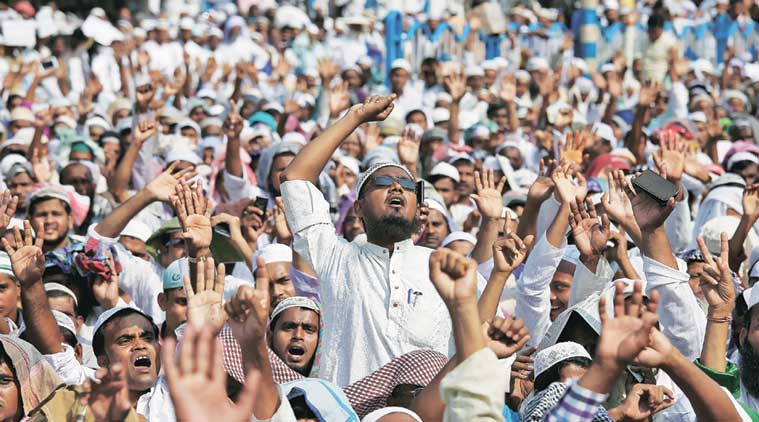
Commenting on the rise of the Modi sarkar, he was of the opinion that the steady advance of anti-secular forces in India over the last five years has challenged the country, and in particular, forced Indian Muslims into an uncertain silence.
"The sad thing is that the people have to pretend that acts of terror seen in Mumbai or associated with other encounters are not part of a cause and effect chain. To even suggest it brings the charge of being sympathetic to terror. One can surely fundamentally abhor terrorism, yet analytically believe it to be precipitated by some rightly or wrongly perceived failure of justice," he said.
Further questioning the hyper-nationalism, he noted that when an honest attempt to understand the angst that leads to acts of subversion and virtual self-destruction itself is branded an illegitimate anti-national act, what hope is there that the people in India will ever understand what is going wrong? How will Indian Muslims ever be able to eliminate the menace of wanton destruction?
Indian Muslims politically irrelevant in Gujarat
Khurshid also stressed that the association of political groups with mindless violence in several parts of the world was truly painful.
"Let us not forget, though, that the resort to weapons by the PLO, was linked to politics, but nobody except the Zionists would have thought them to be dishonourable."
The senior advocate's remarks included an impassioned plea to change the narrative surroundings Muslims in general.
"We should remember that no Muslim in our world would condone the acts of Osama Bin Laden or the ISIS. Misinterpretation or misuse of its doctrines for extraneous political ambitions must not make an artificial enemy of a great, egalitarian religion. Co-existence, not confrontation, is the answer for survival and prosperity. People who demonise Islam to serve their personal agenda are no better than those who use it to perpetuate everything that it opposes in its true form," he wrote.
The former minister recalled a time when India had a voice and for reasons other than the fact that it has the second-largest Muslim population of the world.
"But how do the oppressed in India seek a voice now when they cannot even have an honest conversation at home? By stifling the voice of Muslims at home does the government in India have the locus to speak to them and for them as trusted friends in the world? So Palestine, Iran, Iraq, Afghanistan, the GCC, Syria and the OIC no longer wait to hear from India before acting or reacting to events. Russia no longer consults them and the US merely wants support for its fight against terror," Khurshid maintained.
Muslim man hacked to death in India over 'love jihad'
Khurshid pointed out that Indian Muslims were leaderless and voiceless, and were living in a fresh limbo. Political parties that have made much political capital out of the support for Muslims over the decades now caution patience and tactical forbearance, he noted.
"The idea of India that was inherited from its founding fathers has proved to have the strength to overcome the challenge of adversaries over the decades. It will be overwhelmed by them only if we lose faith in its capacity to prevail," Salman Khurshid said.
"The dilemmas faced by Muslims are even greater for their supposed leaders. To begin with they have traditionally been perceived as leaders of Muslims rather than leaders who are Muslims. But unlike Dalit and OBC leaders, Muslim leaders first suffer by restrictive labels and then are accused of being communal. At the same time, their own community questions their intent if not capacity to represent them. The 2017 Gujarat election was an obvious example of how it is permissible to use caste for justice, majority religion for equality, but impermissible to seek equity for the minorities," the former minister concluded.
This article originally appeared on Hindustan Times

















COMMENTS
Comments are moderated and generally will be posted if they are on-topic and not abusive.
For more information, please see our Comments FAQ